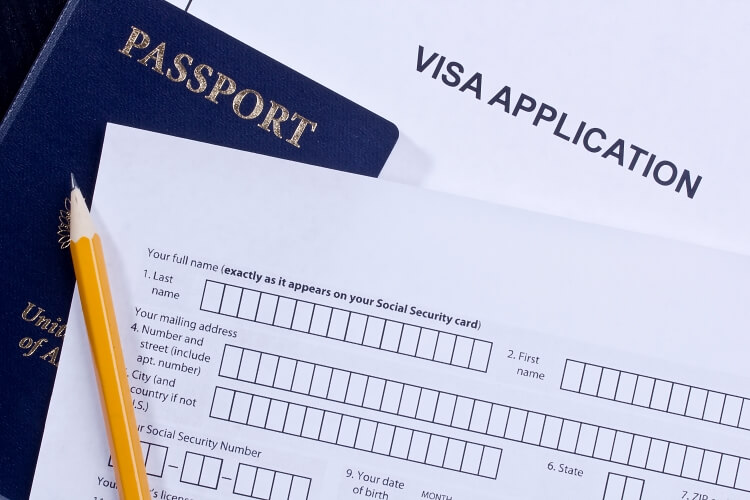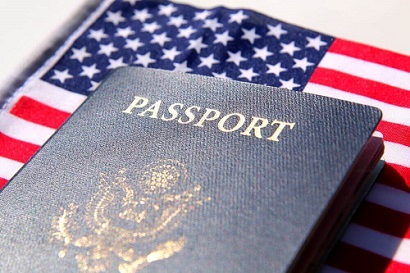What You Need To Know About Visa Applications in the US
Moving to a new country can be an incredibly exciting but also stressful experience. There’s the excitement of discovering new cultures and getting to know people differently, but it also comes with the burden of dealing with Visa applications and other legal requirements.
The United States immigration policy, for example, comes with a unique set of rules, regulations, and paperwork that can be difficult to understand if you don’t know what you’re doing. This article will explore Visa application requirements and recommendations for those looking to move to the U.S.
See type of temporary visas here
For Tourists On A B-2 Visa
B-2 Visa allows individuals to enter the U.S. for tourism, medical treatment, or visits with friends and relatives. It does not allow for the individual to engage in any employment activities while in the U.S.
The general requirements for a B-2 Visa include:
- A completed online Visa application form (DS-160).
- A passport with a validity date of at least six months beyond your intended stay in the U.S.
- One recent 2×2 passport-style photo.
- A Visa application fee payment receipt.
- Evidence of financial support, such as a letter from a sponsor or a bank statement.
- Evidence of ties to your home country, such as a job or family, to demonstrate that you have a reason to return after your trip.
- A clear explanation of your travel itinerary, including the reason for your trip, planned activities, and length of stay.
- Proof of sufficient funds to cover all expenses during your stay in the U.S.
- A medical examination report, if required for your specific circumstances.
It is important to note that the requirements for a B-2 Visa can vary based on the individual circumstances of each applicant and US immigration policies, so it’s always best to check the most up-to-date information from the U.S. Department of State’s website or through a U.S. embassy or consulate.
 For B-1 Business Visa
For B-1 Business Visa
B-1 Visa is a non-immigrant Visa category in the United States that allows individuals to enter the country for short-term business purposes. For example, attending business meetings, negotiating contracts, consulting with business associates, and participating in conventions and trade fairs.
To apply for a B-1 Business Visa, an individual must typically provide the following:
- A valid passport.
- Completed nonimmigrant Visa application form (DS-160).
- A photo of himself/herself.
- Evidence of business ties.
- Proof of financial support.
- Payment of Visa application fee.
In addition to the above-mentioned documents, the US embassy or consulate may also require other documentation to support the purpose of the trip, such as an invitation from a US company, a detailed itinerary of activities during the stay, and evidence of ties to the home country.
It’s important to note that the requirements and documentation may vary depending on the individual’s circumstances and the US embassy or consulate where the application is being made. It’s always advisable to check the specific requirements before applying for a B-1 Business Visa.
For An F-1 Student Visa
F-1 Visa allows international students who want to take full-time academic studies at an accredited U.S. college or university. The F-1 Visa is intended for students who are coming to the US to obtain a degree, or to participate in a language training program or other academic programs. F-1 Visa holders are allowed to engage in part-time work on campus and may also be eligible for off-campus employment under certain circumstances.
To apply for your temporary Visa you’ll need to be offered a position by a SEVP-certified educational institution. Also, ensure that you pay your SEVP fee in time so that you can schedule a sit-down interview with a staff member at your nearest U.S. Embassy or Consulate.
For Family-Sponsored Residency Visa
A family-sponsored residency Visa is an immigrant Visa that allows individuals to live and work permanently in the United States through sponsorship by a qualified family member who is a U.S. citizen or a lawful permanent resident. The family member must be the sponsor and file a petition on behalf of the foreign relative.
There are several different types of family-sponsored residency Visas, including:
- Immediate Relative Visa: This Visa is available for the spouse, unmarried minor children, and parent of a U.S. citizen.
- Family Preference Visa: This is for specific categories of relatives, including unmarried adult children and siblings of U.S. citizens and lawful permanent residents.
The specific requirements for each type of family-sponsored residency Visa can vary and may include eligibility criteria, processing time, and restrictions. It’s advisable to consult an immigration attorney for more information and guidance on the specific requirements and the process of obtaining a family-sponsored residency Visa.
Only immediate family members such as a spouse or a parent can sponsor an individual for a family-sponsored residency Visa. If you ask a grandparent, aunt, uncle, or cousin to sponsor your Visa petition, your Visa will be denied. It’s important to note that the sponsor must be a U.S. citizen or a lawful permanent resident and must be able to demonstrate the ability to support the sponsored relative financially.
The specific requirements for a family-sponsored Visa may vary depending on the type of Visa you are applying for. For instance, if you’re seeking to move to the US with your future U.S. spouse as your sponsor, you’ll need to meet the requirements of the K1 Fiance Visa.
However, you are expected to marry your fiancé within 90 days of entering the U.S. and hold a legal wedding ceremony that provides a marriage certificate with your and your partner’s full name and the wedding date.
To apply for a family-sponsored Visa, you’ll need to create an account with the USCIS and apply for the Visa yourself. Ensure that you complete the forms thoroughly and upload all required supplementary evidence to avoid delays in processing.
For Employer-Sponsored Residency Visas
Employer-sponsored residency Visas are Visas for individuals who are sponsored by a U.S. employer for permanent residency in the United States.
This type of visa includes the L Visa for intracompany transferees, the O Visa for individuals with extraordinary ability, and the EB-1 Visa for individuals with exceptional ability or outstanding researchers and professors.
The requirements for each employer-sponsored residency Visa may vary, but in general, the employer must prove that they are unable to find a qualified U.S. worker for the offered position and that the foreign national is qualified for the job. The foreign national must also prove that they have the necessary qualifications, such as education and work experience, for the offered job.
It’s important to note that the employer must go through a process with the U.S. Citizenship and Immigration Services or USCIS to obtain approval for the sponsorship, and the foreign national must go through a separate process to get the Visa. It can be complex and time-consuming; thus, it’s advisable to consult an immigration attorney for more information and guidance on the specific requirements and the process of obtaining an employer-sponsored residency Visa.
For Employer-Sponsored Residency Visas
Employer-sponsored residency Visas are Visas for individuals who are sponsored by a U.S. employer for permanent residency in the United States.
This type of visa includes the L Visa for intracompany transferees, the O Visa for individuals with extraordinary ability, and the EB-1 Visa for individuals with exceptional ability or outstanding researchers and professors.
The requirements for each employer-sponsored residency Visa may vary, but in general, the employer must prove that they are unable to find a qualified U.S. worker for the offered position and that the foreign national is qualified for the job. The foreign national must also prove that they have the necessary qualifications, such as education and work experience, for the offered job.
It’s important to note that the employer must go through a process with the U.S. Citizenship and Immigration Services or USCIS to obtain approval for the sponsorship, and the foreign national must go through a separate process to get the Visa. It can be complex and time-consuming; thus, it’s advisable to consult an immigration attorney for more information and guidance on the specific requirements and the process of obtaining an employer-sponsored residency Visa.
Interview With The Nearest U.S. Embassy Or Consulate
As part of the Visa application process, many individuals may be required to attend an in-person interview at the nearest U.S. Embassy or Consulate. This interview is an opportunity for the consular officer to verify the information in the Visa application, assess the individual’s eligibility for the Visa, and determine if they pose a security risk to the United States.
The interview is a critical step in the Visa application process. The applicant must be prepared to answer questions about their background, employment, education, travel history, and the purpose of their trip to the United States. It’s essential to be honest and forthcoming during the interview and to provide clear and accurate information.
To prepare for the interview, the petitioner should review their Visa application and the documents they submitted, as well as familiarize themselves with the requirements for the Visa category they are applying for. They should also be prepared to provide additional documentation if requested, such as financial information or proof of ties to their home country.
It’s important to arrive at the U.S. Embassy or Consulate on time for the interview and to dress appropriately. Moreover, the applicant must be prepared for a possible security check upon entering the building.
It’s also a good idea to be familiar with the policies and procedures of the U.S. Embassy or Consulate, as they can vary depending on the location. This information is usually available on the U.S. Department of State’s website or on the website of the U.S. Embassy or Consulate.
 Seek Help From Lincoln-Goldfinch Law – Abogados de Inmigración For Your Visa Applications
Seek Help From Lincoln-Goldfinch Law – Abogados de Inmigración For Your Visa Applications
Being familiar with the requirements and gathering all the necessary documentation before applying can help ensure a smoother process and reduce the chances of a delay or rejection. That’s how an immigration lawyer can help.
Immigration attorneys from Lincoln-Goldfinch Law – Abogados de Inmigración can guide you throughout the whole process. They will inform you of any changes to the Visa requirements, as they can vary based on U.S. immigration policies and the individual circumstances of each applicant. Hiring an immigration lawyer can increase the chances of a successful outcome and reduce the stress and confusion associated with the Visa application process.



